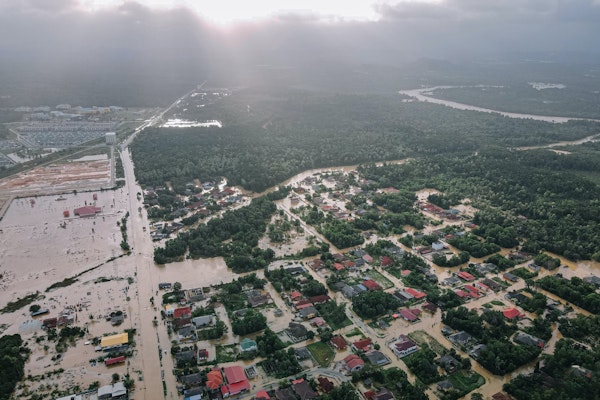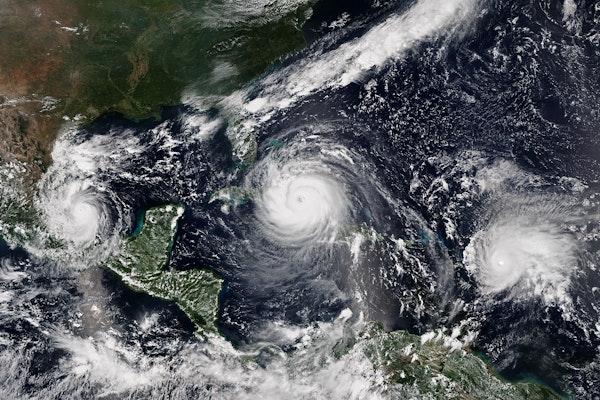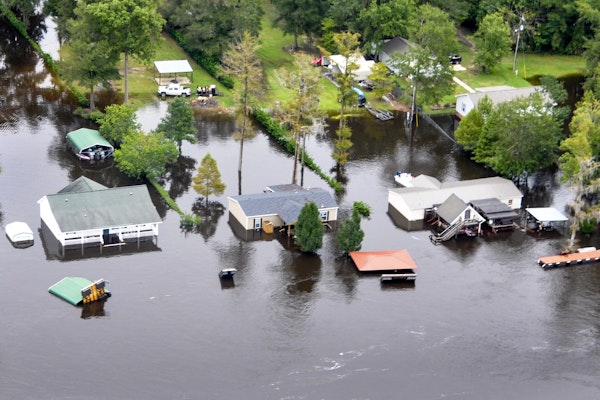
Hailstorms to Produce Larger Hailstones as Climate Warms, Posing Greater Damage Risks
A new study predicts that climate change will lead to larger hailstones by mid-to-late century, resulting in increased damage risks to aircraft, vehicles, and buildings due to stronger thunderstorm updrafts.
August 29, 2024
Catastrophe
Legislation & Regulation
Property
Risk Management
Ohio

North Carolina Supreme Court Rules on Validity of Homeowner’s Insurance Cancellation Before Fire Loss
The North Carolina Supreme Court upheld a ruling that a mailed cancellation notice met state requirements, effectively voiding a homeowner’s insurance policy weeks before a fire destroyed the property.
August 29, 2024
Legislation & Regulation
Litigation
Property
Risk Management
North Carolina

Restoration Best Practices for Insurance Adjusters: Safeguarding Policyholders and Minimizing Losses
Understanding restoration best practices is essential for insurance professionals to minimize losses, protect policyholders’ belongings, and make informed decisions when engaging recovery experts after incidents like floods, fires, or natural disasters.
August 29, 2024
Catastrophe
Insurance Industry
Property
Risk Management

Coney Island Cyclone Closed After Mid-Ride Stop, Repairs Underway
The iconic 97-year-old Coney Island Cyclone roller coaster in Brooklyn, NY, has been closed indefinitely after a mid-ride halt caused by a damaged chain sprocket. No injuries were reported.
August 28, 2024
Liability
Property
Risk Management
New York

Atlantic Hurricane Activity Expected to Surge in September as Conditions Favor Storm Formation
Meteorologists predict an active September in the Atlantic, with up to 10 named storms potentially forming as reduced wind shear and dry air create favorable conditions for hurricane development.
August 28, 2024
Catastrophe
Insurance Industry
Property
Risk Management
Florida
New York
North Carolina
Pennsylvania
South Carolina

Navigating the Intersection of ESG Principles and Risk Management in Modern Business
Integrating Environmental, Social, and Governance (ESG) principles with robust risk management strategies is key to fostering sustainable business practices, improving compliance, and enhancing long-term resilience in a volatile market.
August 28, 2024
Risk Management
Technology

Increased Heat Levels Raise Workplace Injury Risks, Workers’ Compensation Data Reveals
A recent analysis by Colorado’s largest workers’ comp insurer highlights a 52% rise in workplace injuries when temperatures exceed 90 degrees (F), emphasizing the importance of heat safety measures for indoor and outdoor workers.
August 27, 2024
Insurance Industry
Risk Management
Workers' Compensation
Colorado

Simplifying Insurance: Why Clear Language Matters More Than Buzzwords
The insurance industry is ripe with innovation, but the overuse of vague buzzwords like "transformation" and "disruption" dilutes meaningful progress. A call for precise and straightforward communication can better serve clients, investors, and the industry itself.
August 27, 2024
Insurance Industry
Legislation & Regulation
Risk Management
Technology

Federal Policy Conflicts Could Raise Flood Insurance Costs, Leave Thousands Unaware of Dam Risks
Conflicting federal policies hinder communities from accessing vital dam failure data, potentially raising flood insurance costs and leaving residents unaware of flood risks.
August 26, 2024
Catastrophe
Legislation & Regulation
Property
Risk Management
Arizona
California
Colorado
Georgia
Minnesota

Ransomware Claims Drive Severe Losses as Cyber Threats Surge in 2024
Resilience’s midyear 2024 report reveals ransomware as the leading cause of cyber losses, with a sharp increase in the severity of claims, largely driven by third-party risks and vendor failures.
August 26, 2024
Insurance Industry
Risk Management
Technology

Rising Vessel Complexity and Size Escalate Risks in Global Marine Insurance Market
As vessels grow in size and complexity, the global marine insurance market faces heightened risks, leading to increased volatility and the need for long-term strategies to manage major losses.
August 26, 2024
Insurance Industry
Marine
Risk Management
Underwriting

Modernizing Freight Claims: The Carmack Amendment’s Role in Today’s Logistics
The Carmack Amendment has long served as a legal foundation for freight claims in the U.S., but evolving logistics and e-commerce trends challenge its relevance, necessitating fresh strategies for claims professionals.
August 26, 2024
Legislation & Regulation
Risk Management
Technology
Tennessee

Hurricane Rainfall Predicted to Intensify in Frequency and Impact
A DeepSky Research report predicts a 300% rise in extreme hurricane rainfall frequency and a 33% increase in severity, highlighting the urgent need for preparedness as hurricane impacts are expected to worsen rapidly.
August 26, 2024
Catastrophe
Legislation & Regulation
Property
Risk Management
Florida
Louisiana
Mississippi
North Carolina
South Carolina

Harnessing AI for Agricultural Insurance: Enhancing Risk Management and Claims Efficiency
AI is transforming agricultural insurance by enhancing risk management, improving claims processing, and optimizing resource use, benefiting both insurers and growers in an increasingly volatile climate.
August 26, 2024
Insurance Industry
Property
Risk Management
Technology

Pets Overcoming Unusual Mishaps Compete for Nationwide’s 2024 Hambone Award
Nationwide’s 16th annual Hambone Award highlights bizarre pet incidents like a puzzle-eating pup and a toenail-tangled parrot, with voting open through August 22, 2024, to determine the most unusual pet insurance claim.
August 21, 2024
Education & Training
Insurance Industry
Risk Management
Weird
Florida
Massachusetts
New Jersey
North Carolina
Oregon





